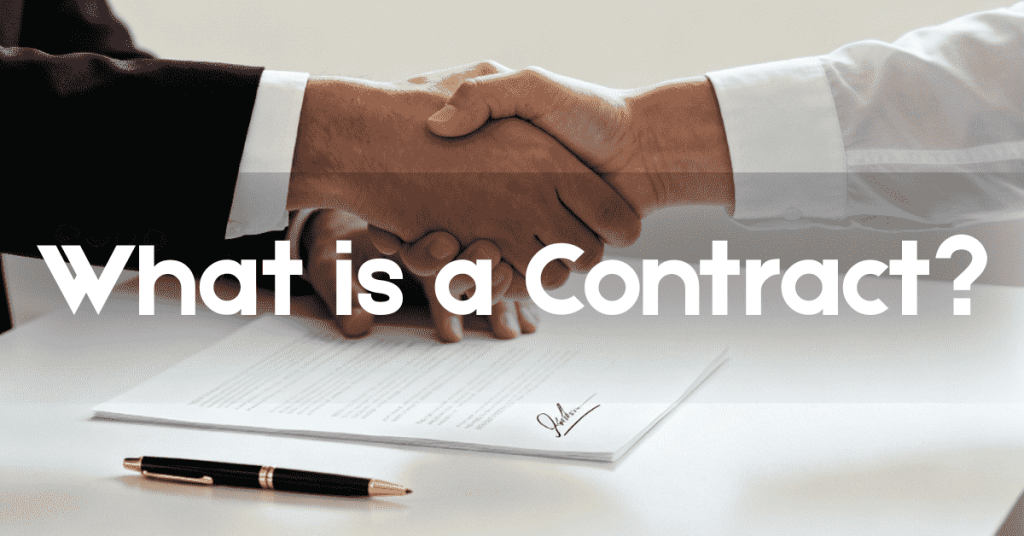Enterprises that want to excel in business and grow fast, view contracts as much more than just legal documents. For them, contracts are the foundations of every business relationship they get into.
For modern enterprises, the real value of a contract begins after it is signed. Each clause, obligation, and timeline becomes a measurable part of business performance. When viewed in this way, the contracts evolve from being static records into active business assets that influence revenue, risk, and operational outcomes.
From vendor commitments to service-level agreements, an organisation’s success depends on how effectively the obligations mentioned in the contract have resulted in real business outcomes. This is where measuring Contract Performance becomes important.
What is Contract Performance?
Contract performance is the process of ensuring that everything that was promised in a contract is carried out as agreed by the parties.
It means that each side delivers on its commitments, whether that involves goods, services, or payments, within the defined timelines and as per the expected quality standards. In simple terms, contract performance is all about turning written commitments into real business results.
In the case of enterprises, contract performance is not limited to legal compliance only. It also connects directly to how efficiently it has been able to convert the agreement into measurable outcomes such as revenue realisation, timely delivery, and reduced risk exposure.
Strong contract performance shows that an agreement has delivered its expected value while keeping risk and compliance under control. It also serves as a measure of how well an organisation manages operations and partnerships after a contract is signed.
Every agreement includes some expectations around quality, timelines, and deliverables. When those expectations are met in full, performance is complete. When only minor deviations occur but the essential purpose of the contract is achieved, performance may still be acceptable.
Complete Performance
Complete performance occurs when all obligations are fulfilled exactly as agreed. Once fulfilled, both parties are deemed to have met their responsibilities, and the contract is considered closed.
Example: A construction firm builds an office facility according to approved plans, within the agreed budget and timeline.
Substantial Performance
Substantial performance occurs when most of the obligations have been met, even though there are small variances from what was originally agreed upon. What has been done still delivers the core benefit expected under the contract.
Example: A supplier of goods delivers nearly the full order on time, with minor delays that are later corrected.
Both these types of performance show how contracts can act as the foundation of business activity and accountability. Regularly tracking the performance of the active contracts helps the legal teams to spot problems early, avoid disputes, and maintain strong working relationships.
Contract Performance vs. Performance Contract
Although these two terms sound somewhat similar, they serve very different purposes in business and legal operations. Understanding the difference between the two will help legal and procurement teams track performance accurately and design contracts that drive accountability.
Contract performance means carrying out the obligations mentioned in a contract. It tracks whether a contract is successfully executed or not once it is signed. For example:
- A technology provider delivers software features as promised.
- A buyer pays the full price for some goods after the seller delivers them to him.
A performance contract, on the other hand, is a type of agreement where the payment for the work done depends on the achievement of the expected results defined in the contract. For example,
- A marketing agency may get paid for the number of qualified leads generated by them.
- An energy service company earns fees based on the actual energy savings achieved.
The first measures how well obligations are executed, while the second builds performance expectations into the payment structure itself. By defining and tracking both types of contract carefully, the enterprises will be able to link contract performance directly to business KPIs and use performance contracts as tools to drive measurable impact.
Why Contract Performance Matters
Contract performance is not just a legal obligation that an enterprise has to fulfil. It is a business metric that directly affects how efficiently it operates, how much value it captures from every deal, and how well it manages compliance and risk. By tracking their performance and optimising them, the businesses can make their contracts work as real drivers of business growth.
Reduces Risk and Disputes
Consistent contract performance lowers the chances of missed deadlines, poor delivery, or compliance failures. By keeping obligations visible and measurable, organisations can identify the potential risks faster and take preventive actions before they turn into disputes.
Improves Financial Control
Every contract ties into cash flow and costs. When the contract obligations are fulfilled as planned, revenue is realised on time, penalties are avoided, and payments remain predictable. On the other hand, poor performance can disrupt financial stability and slow down growth.
Builds Trust and Reputation
Reliability in performance strengthens relationships with customers, suppliers, and partners. The ones that are well-known for meeting their contractual commitments are able to build a solid commercial credibility. This helps them to attract repeat business from their customers easily.
Drives Operational Efficiency
Tracking performance across active contracts helps the businesses to streamline their internal workflows and also improve coordination among the teams. It creates accountability and makes performance reviews fact-based and not assumption-driven.
Supports Compliance
The successful performance of many contracts is linked to fulfilling regulatory or policy requirements. Businesses can avoid penalties and the risk of harming their reputation by staying compliant with these obligations.
How to Measure What Matters
You can only improve what you measure. To know whether their contracts are delivering value, the enterprises should track some pre-defined KPIs and conduct regular qualitative reviews that will capture real performance insights.
Financial Metrics
These show how well a contract delivers its expected value:
- Contract value realisation
- Cost savings achieved
- Return on investment (ROI)
- Spend under management
- Time and Delivery Metrics
Time-Based Metrics
These measure the timeliness of performance:
- On-time delivery percentage
- Time to contract completion
- Renewal or closure turnaround
Quality and Efficiency Metrics
These assess whether work meets the expected standards:
- Contract compliance rate
- Error or defect rate
- Customer satisfaction score
- Average contract cycle time
Vendor and Partner Metrics
For businesses that depend on third-party suppliers, vendor performance is crucial:
- Delivery consistency
- Product or service quality
- Responsiveness to issues
- Qualitative Assessments
Beyond numbers, qualitative reviews capture communication quality, adherence to service levels, and the overall health of partnerships.
By conducting qualitative reviews regularly, the organisations will be able to get a complete picture about the overall performance of the contracts.
Modern contract management solutions make it easy to measure these KPIs by automating data collection and providing performance dashboards that update in real time.
Common Reasons For Poor Contract Performance
Even the most well-drafted contracts can underperform if they are not tracked meticulously. Some common causes for contract underperformance are:
- Unclear scope or deliverables.
- Delays in approvals or decision-making.
- Lack of communication between the internal teams and counterparties.
- Weak monitoring or missing performance data.
- Non-compliance with agreed terms.
- Force majeure events or other external disruptions that prevent execution.
Each of these problems can lead to delays, financial losses, or strained relationships between the stakeholders. Early identification and transparent communication are key to resolving them.
Best Practices to Improve Contract Performance
Enterprises with a good record of contract performance do not rely on luck. Instead, they build robust processes that help them to track and execute their contracts with precision.
These are some proven ways to improve contract performance:
- Draft The Contracts Clearly: Write unambiguous terms in the contracts and define measurable obligations.
- Review progress: Evaluate the contracts periodically and note down the progress. If the performance is lagging, find out why.
- Manage Risk Properly: Identify the potential risks and bottlenecks that can hurt contract performance and prepare strategies for mitigating them.
- Incentivise Results: Rewarding good performance is a great way to ensure that the contract performance remains high. You can include clauses where the counterparties are incentivised if they are able to complete the work faster.
- Collaborate Closely: Openly: Encourage all the parties to communicate openly with each other regarding the progress of the contracts.
- Dispute Redressal: Having a comprehensive dispute resolution process will ensure that work does not cease owing to unresolved issues between the parties.
- Plan for Uncertainty: Make contingency plans for handling unexpected events or changing business conditions.
The Legistify Advantage
Enterprises that want to manage their contract performance well need to have complete visibility into every agreement they have entered into. They also need to predict the risks before they occur and ensure that each contract delivers measurable value to them.
Legistify’s Contract Management Software helps enterprises achieve this by providing them AI-powered dashboards, automated alerts, and complete unified visibility into contracts spread across all jurisdictions and business units. It also helps them to measure the business and financial impact of each contract.
With Legistify, legal and business teams can act faster, reduce risk, and strengthen accountability across every agreement. It turns contract management into a driver of business performance, rather than a routine compliance task.
See for yourself how Legistify’s Contract Management Software can help you monitor obligations, predict risks, and achieve consistent results from your contracts. Book a demo today and experience predictive legal performance in action.
Frequently Asked Questions
1. What does contract performance mean for a business?
Contract performance simply means making sure that everything promised in a contract actually happens. It shows how well both parties meet their commitments, whether that involves goods, services, or payments, within the timelines and quality standards agreed upon.
2. Why should companies care about contract performance?
Contract performance directly impacts business outcomes. When the contracts are managed well, companies save time, avoid risks, protect revenue, and strengthen relationships with customers and suppliers. Poor performance can lead to delays, penalties, or even legal disputes.
3. How can contract performance be measured?
Businesses can measure performance using a mix of data and feedback. Key Performance Indicators (KPIs) such as on-time delivery, contract compliance rate, and cost savings help track progress, while qualitative insights like customer satisfaction and communication quality complete the picture.
4. What are the reasons for poor contract performance?
Common causes for poor contract performance include unclear terms, missed deadlines, lack of communication, and limited visibility into obligations. Sometimes, it happens because teams rely on manual tracking instead of using automated systems that can flag issues early.
5. How does Legistify help improve contract performance?
Legistify’s Contract Management Software brings in all contracts, deadlines, and obligations into one intelligent platform. It tracks performance in real time, predicts risks before they occur, and gives legal and business teams clear visibility into every agreement. This helps organisations stay compliant, deliver on commitments, and improve results consistently.



